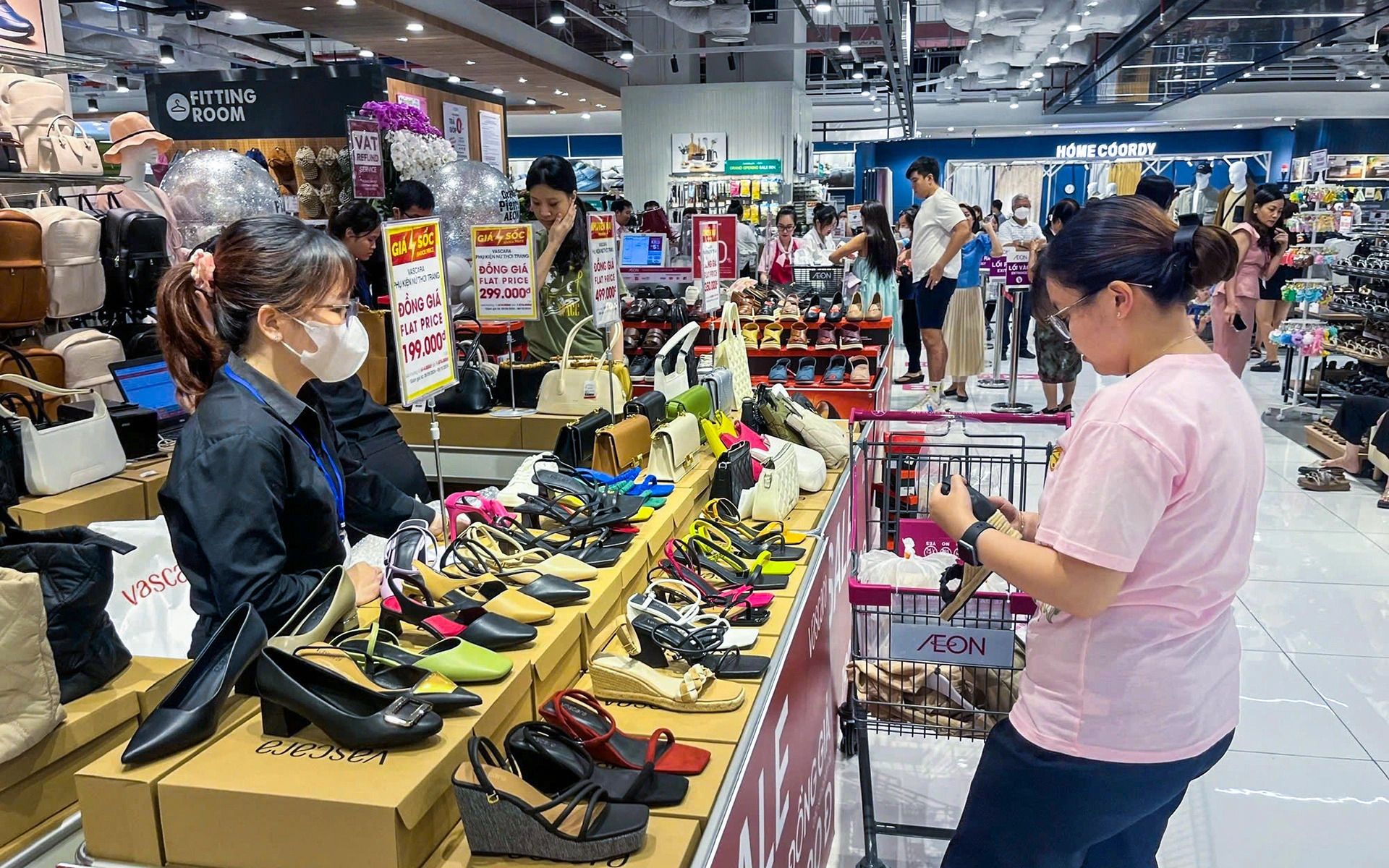The influx of cheaper Chinese products sold to online shoppers in Vietnam via Chinese e-commerce platforms like Temu, Taobao, and 1688 is presenting significant challenges for Vietnamese businesses, especially small and medium enterprises, said the head of the Ho Chi Minh Rubber Plastic Manufacturer Association.
Fierce competition
Such price pressure from these Chinese e-commerce giants could leave the consumer goods sector in Vietnam at risk of being “wiped out” in the upcoming time, Nguyen Quoc Anh, chairman of the association, told Tuoi Tre (Youth) newspaper on the sidelines of VietnamPlas 2024, an international plastics and rubber expo held in the southern city late last week.
These platforms are disrupting local production, especially in the footwear and consumer goods sectors.
Vietnamese consumers now can buy products directly from Chinese e-commerce platforms, with delivery times of just a few days.
The new way of shopping is creating a fierce competition for domestic manufacturers, who are already burdened by high production costs, the chairman elaborated.
Small and medium enterprises in industries like plastics and rubber are bearing the brunt of this price competition.
For instance, a pair of locally-made sandals selling for VND300,000-400,000 (US$11.8-15.7) is being undercut by Chinese imported items offered at 20-30 percent cheaper on e-commerce platforms.
Anh argued that the convenience of home delivery services and the lower prices offered by these Chinese platforms have also left Vietnamese manufacturers unable to compete with their Chinese rivals.
Multiple domestic manufacturers have had to import Chinese products which were then rebranded as Vietnamese items and sold in the local market.
However, this practice turned out ineffective as Chinese imports still dominate the local market for its cheaper price and ready availability.
He emphasized the unfairness of Chinese e-commerce platforms like Taobao, Temu, and Shein selling goods in Vietnam without paying taxes, while benefiting from a strong logistic infrastructure backed by the Chinese government.
Meanwhile, Vietnam’s small and medium businesses are confronting a considerable number of obstacles, comprising import tariffs and high production costs.
Production materials like rubber, chemicals, and plastics are subject to value-added tax upon their arrival at ports, adding that it is extremely hard to secure tax refunds.
He urged actions to safeguard the domestic market and production, stressing that it is a macroeconomic issue that demands government intervention.
A call for fair trade practices
The unfair competition between imported goods and locally-made products has prompted Vietnamese manufacturers to call for the government to impose import taxes on Chinese items sold via e-commerce platforms, so as to create a level playing field for domestic businesses.
Anh elaborated that domestically-made products offered through traditional channels are subject to various taxes, putting them at a disadvantage compared to untaxed goods sold through e-commerce platforms.
The influx of low-cost Chinese goods through these e-commerce giants could permanently reshape the manufacturing sector in Vietnam in the next couple of years, if no measures are swiftly taken, he said.
He took an example of some small businesses already struggling to survive the flood of cheap Chinese goods sold via e-commerce platforms.
“My friend’s business specializes in producing a single type of garment and distributing it to traditional markets and supermarkets.
The business earlier made the most of cheap materials shipped from China to produce and sell its products domestically.
This type of product is almost unsellable, as it is more expensive than similar Chinese goods sold on e-commerce platforms.
Like us on Facebook or follow us on Twitter to get the latest news about Vietnam!



















































